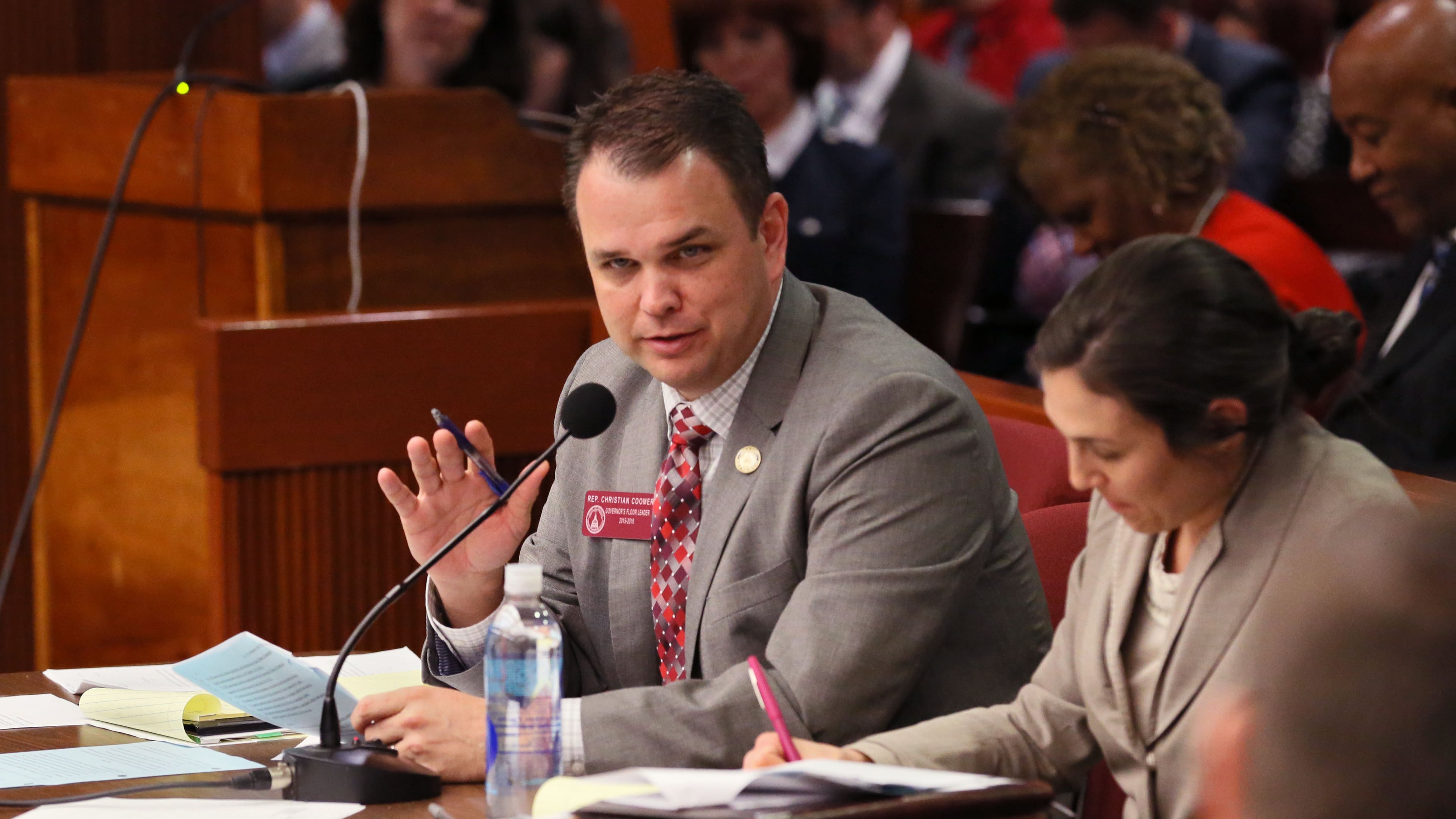Judicial ethics panel refuses to dismiss charges against Coomer

A state panel has rejected Georgia Court of Appeals Judge Christian Coomer’s bid to get ethics charges against him dismissed.
The recent decision clears the way for the state Judicial Qualifications Commission to schedule a final hearing for Coomer to face ethics charges that allege he violated the code of judicial conduct as well as campaign finance and banking laws.
Coomer, a former member of the state House from Cartersville, was sworn in as a judge on the Court of Appeals in October 2018. When the state JQC filed ethics charges against him a year ago, Coomer voluntarily agreed to a suspension from his judicial duties.
If it finds Coomer to have violated the code of judicial conduct, the JQC’s hearing panel can recommend punishment, including removal from office, to the Georgia Supreme Court, which has the final say in any resolution.
Coomer came under fire, and criminal investigation, after a former law client, Jim Filhart, filed suit against him. The lawsuit said that, in 2017 and 2018, Filhart gave hundreds of thousands of dollars in loans to a holding company controlled by Coomer and with terms extremely favorable to Coomer. For example, one of the loans, for $159,000, was to be paid off when Filhart would have been 106 years old.
The JQC’s ethics charges encompass those loans as well as Coomer’s drafting a series of wills for Filhart that designated Coomer and his wife and children as beneficiaries. Initial wills designated Coomer as executor of Filhart’s estate and a subsequent one designated Coomer’s wife as executor, which would have protected their positions as beneficiaries, the JQC charges said.
Coomer has since settled the lawsuit filed by Filhart and is no longer part of his will, Filhart’s lawyer, Wright Gammon, said in a previous interview.
In March 2020, Coomer applied to refinance his home and use that money to repay outstanding loans to Filhart. The mortgage application required Coomer to list all his outstanding liabilities, yet he did not disclose his outstanding debts to Filhart, according to the JQC charges. Coomer also said he had a personal investment account with a balance of $214,000, although he removed that money just days before submitting the mortgage application, the JQC charges said.
In court filings, Coomer’s lawyers said their client denies any wrongdoing. They also contended the state judicial watchdog agency has no jurisdiction over any alleged misconduct by Coomer when he was a private attorney before he became a judge in 2018.
But in a 20-page order, Fulton County Superior Court Judge Robert McBurney said JQC rules clearly allow the agency to investigate and bring charges over alleged misconduct that occurred before a judge took the bench.
“Unlawful or otherwise wrongful pre-judicial conduct is perfectly capable of eroding the public’s perception and confidence in the judiciary,” wrote McBurney. He was joined by fellow JQC hearing officers Jamala McFadden, an Atlanta attorney, and Assistant Chief Michael Register of the Cobb County Sheriff’s Office.
Those three hearing officers will preside over Coomer’s hearing, expected to be scheduled sometime next year.
Earlier this month, Coomer agreed to pay a $25,000 fine to settle accusations that he violated state campaign finance laws. Among the allegations were that he illegally used campaign contributions to prop up his private law practice and pay for trips to Hawaii and Israel.
While he is suspended, the state is paying Coomer’s salary — he made $196,000 in 2000. The state is also paying for another judge, Herbert Phipps, who sat on the appeals court from 1999 to 2016, to do Coomer’s job.


